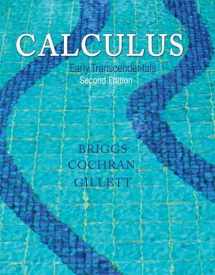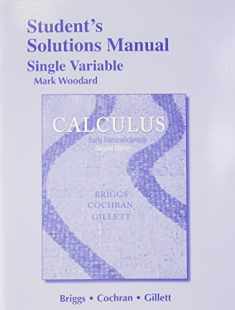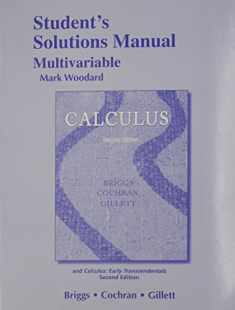
Calculus: Early Transcendentals (2nd Edition)
Book details
Summary
Description
0321965167 / 9780321965165 Calculus for Early Transcendentals Plus NEW MyMathLab with Pearson eText -- Access Card Package
Package consists of:
0321947347 / 9780321947345 Calculus: Early Transcendentals
0321431308 / 9780321431301 MyMathLab -- Glue-in Access Card
0321654064 / 9780321654069 MyMathLab Inside Star Sticker
This much anticipated second edition of the most successful new calculus text published in the last two decades retains the best of the first edition while introducing important advances and refinements. Authors Briggs, Cochran, and Gillett build from a foundation of meticulously crafted exercise sets, then draw students into the narrative through writing that reflects the voice of the instructor, examples that are stepped out and thoughtfully annotated, and figures that are designed to teach rather than simply supplement the narrative. The authors appeal to students’ geometric intuition to introduce fundamental concepts, laying a foundation for the development that follows.


We would LOVE it if you could help us and other readers by reviewing the book
Book review





